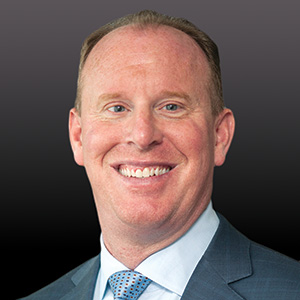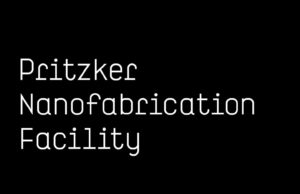Q+A with prolific healthcare business leader Tim Walbert
This issue of Catalyst takes you inside the mind of healthcare business leader Tim Walbert, CEO of Illinois-based Horizon Pharma. What follows is an edited interview with Mr. Walbert — about launching and growing a healthcare business in Chicago, Horizon’s “patient-first” approach to medicine, and what motivates his philanthropic and civic engagement efforts in Chicago.
1. Why did you decide to move Horizon from the Valley to Chicago?
The decision to move Horizon Pharma to the Chicagoland area in 2008 was attributable to my belief that the Chicagoland area is a sustainable life-sciences hub and that Horizon would be able to grow and thrive here. The Chicagoland area boasts an incredible supply of talent, a lower cost of living relative to the coasts, access to rich cultural institutions and a vibrant innovation ecosystem. That decision ended up being the right one, given that since 2008, Horizon has grown from a one medicine to a nine medicine company; from one employee to more than 900 global employees with offices in four countries; and from $74 million in net revenue in 2013 to an estimated range of $1.025 to $1.050 billion in net revenue in 2016.
2. We hear you built the company out of a coffee shop when you arrived in Chicago because spaces like 1871 & MATTER didn’t exist then. How helpful do you think spaces like that are for an entrepreneur like you?
Back in 2008 when I became CEO of Horizon Pharma, my role, along with that of our small team, was to build the company from the ground up. MATTER and its entrepreneurial ecosystem of mentors, capital, office accommodations and programming did not exist. If it had, my job would have been much easier. Today, there is a whole network of co-working spaces which offer access to resources that are needed for a startup to learn and succeed, as well as significantly reduce the learning curve by compiling all of the resources in one place, including access to other entrepreneurs going through the same trials and tribulations.
3. In 2014, Crain’s named Horizon as the fastest growing company in the area across industries. What do you think are some fundamental assets to grow a company as you have – as fast as you have? What would you say were some of big challenges of scaling the company in the last few years (especially after it became publicly traded)?
As far as assets for growth, it all starts with the people. Our employees are driven by the philosophy and understanding that when patients benefit, everyone benefits – providers, employees, shareholders and the healthcare system. Patients are at the heart of everything we do, and our more than 900 employees worldwide have helped build a nimble, dedicated and passionate team of leading industry professionals who are determined to carry out our promise to help people live better lives.
In addition, we keep people engaged by fostering internal innovation and staying true to Horizon Pharma’s entrepreneurial roots. Horizon hires smart, talented women and men, and employees are rewarded for their ideas. If those ideas prove viable, employees are encouraged to pilot them, setting the stage for potential company-wide implementation.
Some of the big challenges are those that always impact the industry such as the evolving PBM/payer landscape, the political environment and the volatility in the financial markets. The hope is that we can execute, as we have for the last five years, and overcome those barriers so that patients can benefit.
4. It seems that a lot of start-ups begin with a distinct “personality,” but as they grow, that personality is not scalable. What are you doing at Horizon to make sure that unique culture stays intact as you grow? (Horizon has been previously named as a Top Workplace by the Chicago Tribune and Top Workplace for Women Over 35 by Crain’s Chicago Business.)
Our culture is extremely important. It is a reflection of who we are and what I believe differentiates Horizon. We are purposeful about recognizing that our culture is integral to our core and are consistently looking for ways to ensure that our culture remains prominent as we continue to grow. Our culture must scale as the business scales. We foster a patient-centric culture of empowerment and accountability, which is a model our employees embrace, and as a result, consistently rise to the occasion. Their talent and passion drive what we are as a company and truly make Horizon a great place to work. My view is that a culture driven by the philosophy that when patients benefit, everyone benefits is and will always be scalable.
5. You’ve shared before that you were diagnosed with an autoimmune disease while in college. You’ve since dedicated your entire professional career to working at different pharma/healthcare companies. How did/does your experience as a patient motivate the company’s “patient-first” approach to healthcare, and also your philanthropic efforts?
Yes, as a junior in college, I was diagnosed with an autoimmune condition. As I learned about this condition and began to understand how it would affect my future, I decided to commit myself to a career in the biopharmaceutical field. I understand that each and every contribution helps to drive the development of innovative therapies. I credit my diagnosis for driving my “patients first” management style and my unrelenting commitment to doing whatever it takes to drive results around the further development of new therapies. I believe I have a unique, firsthand experience about what it means to have access to therapies that can significantly improve the daily life of a patient, including myself. As a result of my experiences, I ensure that Horizon maintains robust assistance programs. As a result, the company provided more than $1 billion in patient support in 2015 alone. Additionally, as a business leader, my experience as a patient has influenced medicine development, acquisition targeting and my focus on disease areas where there are currently unmet treatment needs.
Because I am a patient, I stay as involved as possible with the patient community and advocacy organizations that impact what we do at Horizon. There are several patient organizations I have been involved with, either in a leadership role or as an active member for more than 15 years. In addition to playing a visible role within the patient community, I am also actively focused on cultivating Chicago as a true innovation hub.
6. What is your vision for the company for the next five years, and for Chicagoland as a place for healthcare companies to grow and innovate?
I intend to continue building a new kind of innovative biopharmaceutical company; one that always puts the patients at the center of its work, while acting with speed, agility, intelligence and maintaining an entrepreneurial drive/spirit.
My vision for the Chicagoland area over the next several years is to continue playing an active role in fostering the further development of resources that the 130 entrepreneurs who currently call MATTER home need, not to mention the many entrepreneurs that will follow in their footsteps.
Want to hear from Mr. Walbert directly? Head over to MATTER on Sept. 1, 2016 for an edition of Tales from the Trenches. The event is free and open to the public.
Watch and Listen
2016 PwC US CEO Survey: Transforming from specialty pharma to biotech
What we’re reading
- mHUB, a new center for manufacturing innovation, to open on Chicago’s West Side
- Illinois and Chicago lead Midwest in healthcare investment
- His last company sold for more than $1B. Now Chris Gladwin is hiring again.
- Investor network partnership strengthens entrepreneurship in Bloomington-Normal
- ISTI receives Motorola Solutions Foundation Innovation Generation Grant
Illinois Innovation Network Featured Resource:
Illinois Innovation Network Featured Resource:
The Pritzker Nanofabrication Facility is an ISO Class 5 cleanroom that specializes in advanced lithographic processing of hard and soft materials. The PNF is located in the new Eckhardt Research Center at the University of Chicago. We’re open to all properly trained users through a recharge arrangement. Take a look inside the facility with ChicagoInno and contact us if you’d like to be connected with them.



